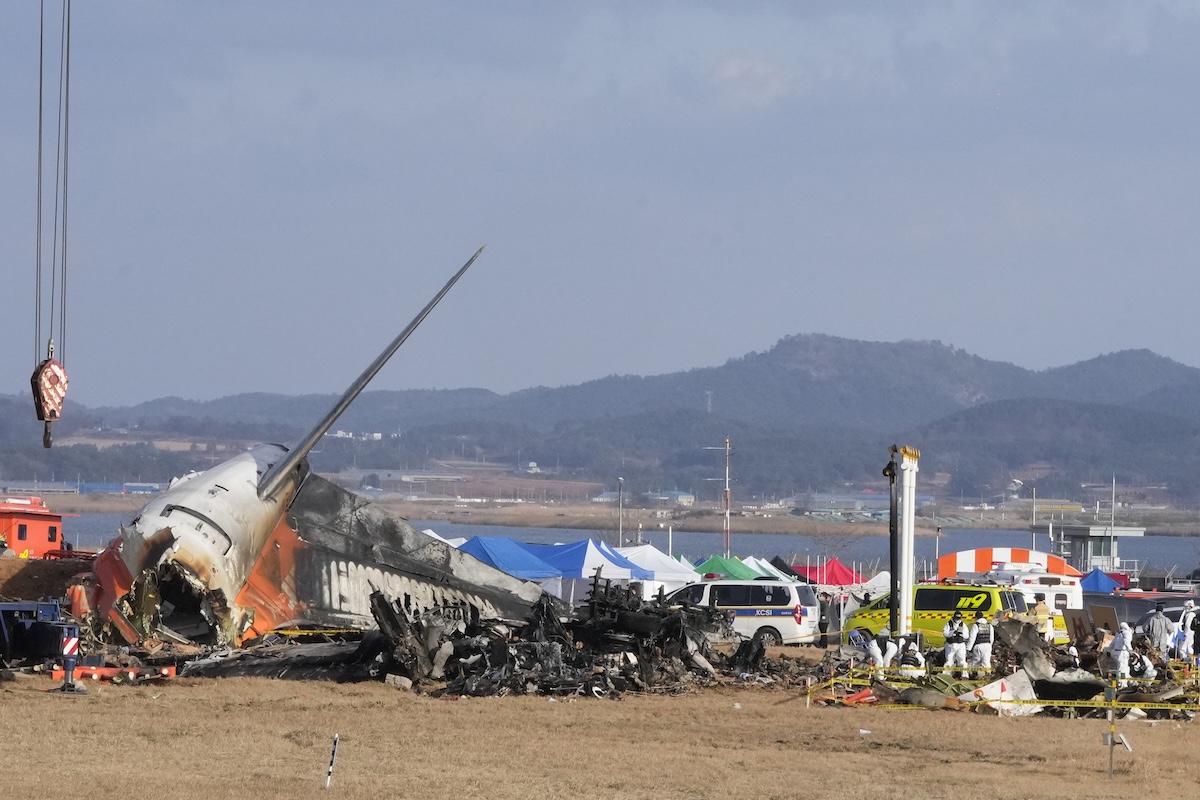
What to Know
- Jeju Air Flight 7C2216 crash landed at Muan International Airport killing 179 of the 181 people on board, in South Korea's worst air disaster in decades.
- Investigators are trying to figure out what caused the fatal belly landing of the Boeing 737-800.
- The aircraft is one of the world's most common models of aircraft, with nearly 4,400 in service, according to Cirium.
Accident investigators are trying to figure out what caused a Jeju Air flight to belly land without its landing gear down at Muan International Airport in southwestern South Korea, killing all but two of the 181 people on board as it burst into flames in the nation's worst air disaster in decades.
South Korea's acting president, Choi Sang-mok, ordered an emergency inspection of the country's Boeing 737-800s, the type of plane used on the fatal Jeju Air Flight 7C2216.
The Boeing 737-800 is one of the world's most commonly used airplanes, and it has a strong safety record. It predates the Boeing 737 Max, the type that was involved in two fatal crashes in 2018 and 2019 that killed all 346 people on board those flights. The 737 Max was grounded for almost two years, and a flight-control system, which was later tweaked, was implicated in both of those crashes.
Get top local stories in Philly delivered to you every morning. Sign up for NBC Philadelphia's News Headlines newsletter.

There are nearly 4,400 of the older Boeing 737-800s operated around the world, according to aviation-data firm Cirium. That means the model makes up about 17% of the world's in-service commercial passenger jet fleet.
The average age of the world's 737-800 fleet is 13 years old, according to Cirium, and the last of the series of planes were delivered about five years ago.
Jeju Air took delivery of the plane which was involved in this weekend's crash in 2017. It was previously operated by European discount carrier Ryanair, according to Flightradar24. The plane involved in the crash was about 15 years old.
Aerospace experts say it's unlikely that investigators will find a design problem with the long-flying aircraft.
"The idea that they'll find a design flaw at this point is borderline inconceivable," said Richard Aboulafia, managing director at AeroDynamic Advisory, an aerospace consulting firm.
A full investigation could take longer than a year, and the unusual incident has raised more questions than answers, such as why the landing gear wasn't deployed. Even with a hydraulic malfunction, Boeing 737-800 pilots can drop the landing gear manually.
One theory involves a possible bird strike that disabled the engines.
"If that happens at the altitude they were at, they may not have had time to do emergency checklists," said Jeff Guzzetti, a retired air safety investigator with the U.S. National Transportation Safety Board and the Federal Aviation Administration. He also said if the plane hadn't run into a hard wall at the end of the runway, the accident could have been more survivable.
The NTSB is leading the U.S. team of investigators that also includes Boeing and the FAA, since the aircraft was manufactured and certified in the United States.
Under international protocols, the country in which the accident took place will lead the overall investigation.






